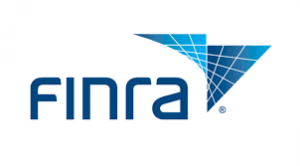
Most financial industry professionals are familiar with the prohibition on “selling away,” the somewhat ambiguous term contemplated by FINRA Rule 3280. FINRA Rule 3280 states that, “[n]o person associated with a member shall participate in any manner in a private securities transaction except in accordance with the requirements of this Rule.” Among other things, the Rule requires a financial advisor to provide written notice prior to participating in a private securities transaction even when the financial adviser receives no compensation.
While it is generally understood that FAs cannot sell securities to customers that are not offered by their broker-dealer without first receiving permission from the broker-dealer, much of the guidance around this rule focuses on what qualifies as a private securities transaction (a term that is arguably poorly defined in the Rule). Many financial advisers, however, are unaware of how broadly FINRA interprets what it means to “participate” in a private securities transaction.
FINRA recently made a determination (not yet publicly released) that a registered representative “participated” in a private securities transaction because he; a) set up a zoom conference call between the outside fund manager and the investor, b) forwarded the original offering materials to the investor, and c) forwarded amended offering materials approximately a year after the original investment.
To support the determination that this level of involvement constituted participation, FINRA’s Staff cited a footnote in a 21-year-old notice to members which states the following:
Associated persons are reminded that “participation” in a securities transaction includes not only making the sale, but referring customers, introducing customers to the issuer, arranging and/or participating in meetings between customers and the issuer, or receiving a referral or finder’s fee from the issuer.
NTM 01-79 n. 7.
FINRA’s Staff also cited In the Matter of the Application of Mark H. Love, Exchange Act Release No. 49248 (Feb 13, 2004). In Love, the financial adviser introduced several customers to the manager of a fund but the SEC found he did much more than just pass along a telephone number. “He effectively vouched” for the fund manager. Love told at least one client that he was personally interested in investing in the fund. Love also facilitated transfers of funds from his client’s brokerage accounts to the fund and when the fund became illiquid, Love interceded on his clients’ behalf.
The SEC in Love emphasized that the word “participate” should be read broadly. To support this, however, the Commission cited to two SEC actions involving reps who received compensation for referring customers to an outside investment. Thus, the question of their participation was never really in question at all.
Most interestingly, the SEC said the following:
we wish to emphasize that a broker who does nothing more than refer a customer to another investment opportunity should not ordinarily run afoul of Rule 3040 [now Rule 3280], where, as here, the broker becomes involved in a customer’s investment choice through a specific recommendation and by facilitating the mechanics of transactions, we believe that such participation fits within the broad range of behavior prohibited by Rule 3040.
(Emphasis added). This seems to directly contradict the footnote cited by FINRA in NTM 01-79 which states that merely “introducing customers to the issuer” could be deemed “participation.”
While the current guidance from regulators is far from clear, there are some common elements in instances in which regulators found that financial advisors violated FINRA Rule 3280 even when the financial advisors did not receive compensation or invest in the securities themselves. Here are some examples of actions that lead to a finding of “participation:” a) facilitating the investment by moving funds from the clients’ brokerage accounts or by delivering checks, b) delivering offering documents to or from the outside issuer, c) indicating that the adviser is interested in the investment, or d) acting as an intermediary between the issuer and the clients.
Ultimately, as in most compliance related matters, it always wise not to leave yourself at the mercy of how the regulators interpret a word such as “participate.” It is also wise not to take the SEC statement at face value that, “a broker who does nothing more than refer a customer to another investment opportunity should not ordinarily run afoul of Rule 3040.” Financial advisers should trust that FINRA will always find “something more” than a mere introduction and require disclosure of such introductions, in writing, to their firm.
Herskovits PLLC has a nationwide practice defending FINRA investigations and disciplinary proceedings. Feel free to contact us at (212)897-5410.
 FINRA Lawyer Blog
FINRA Lawyer Blog

